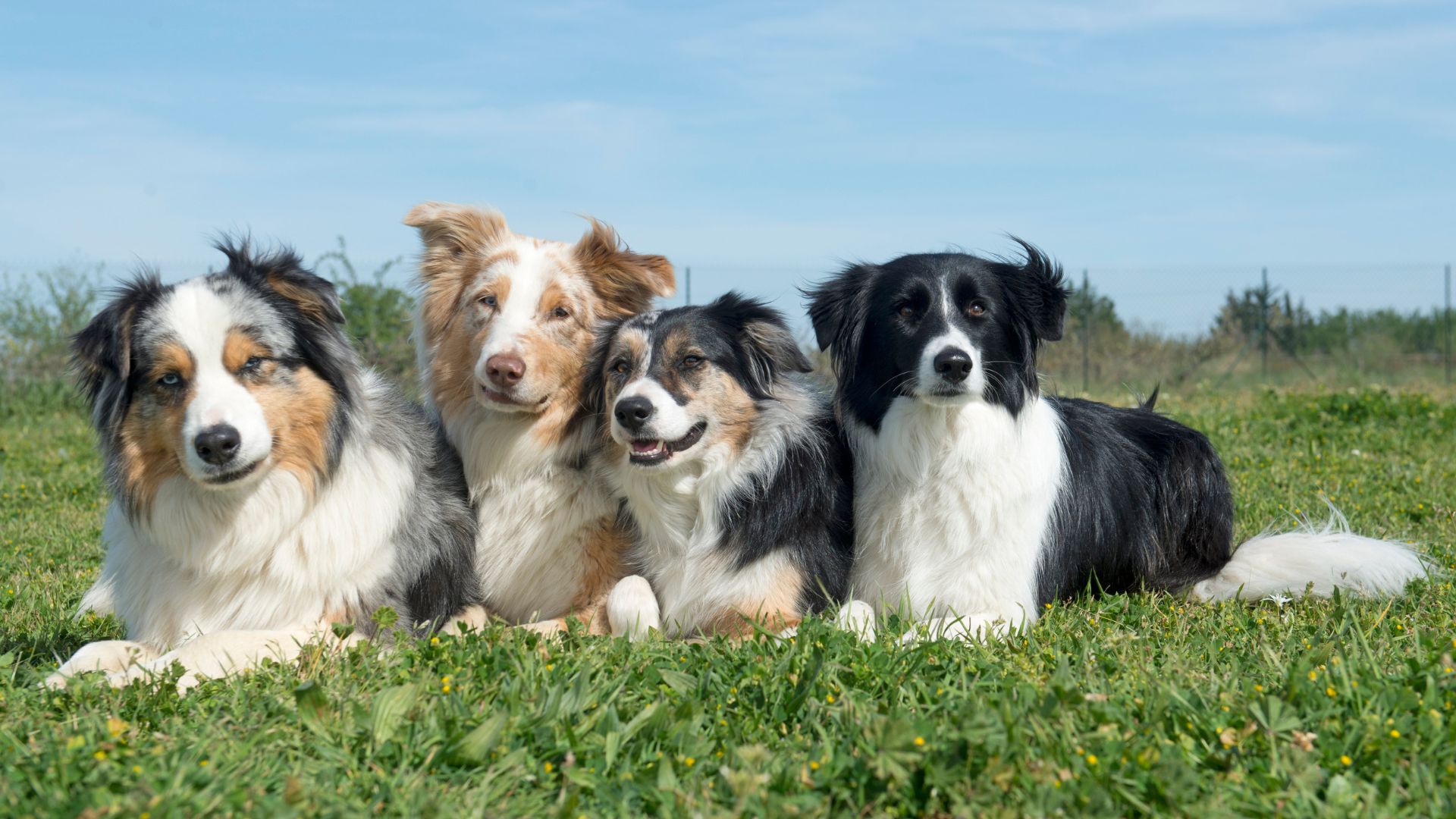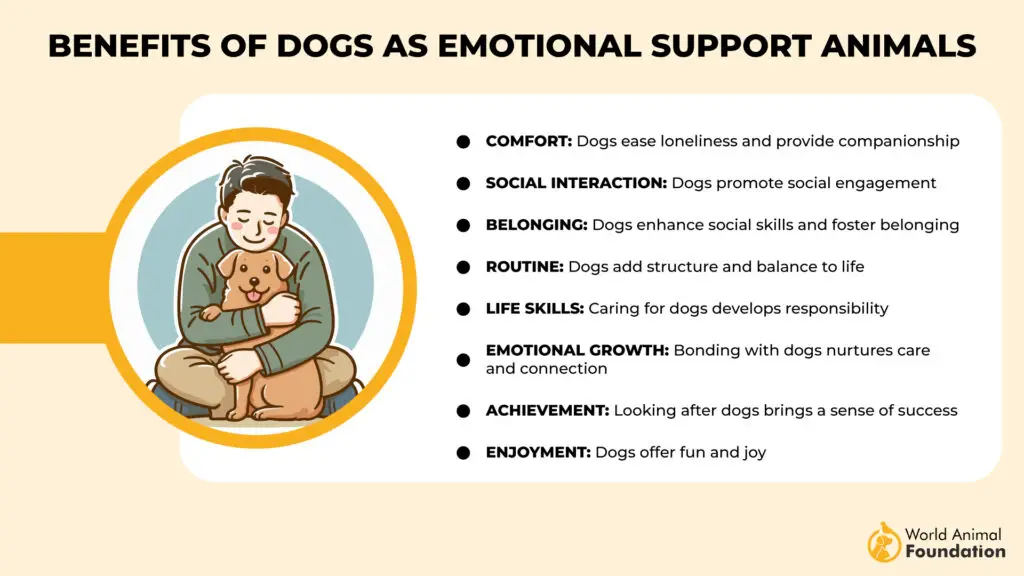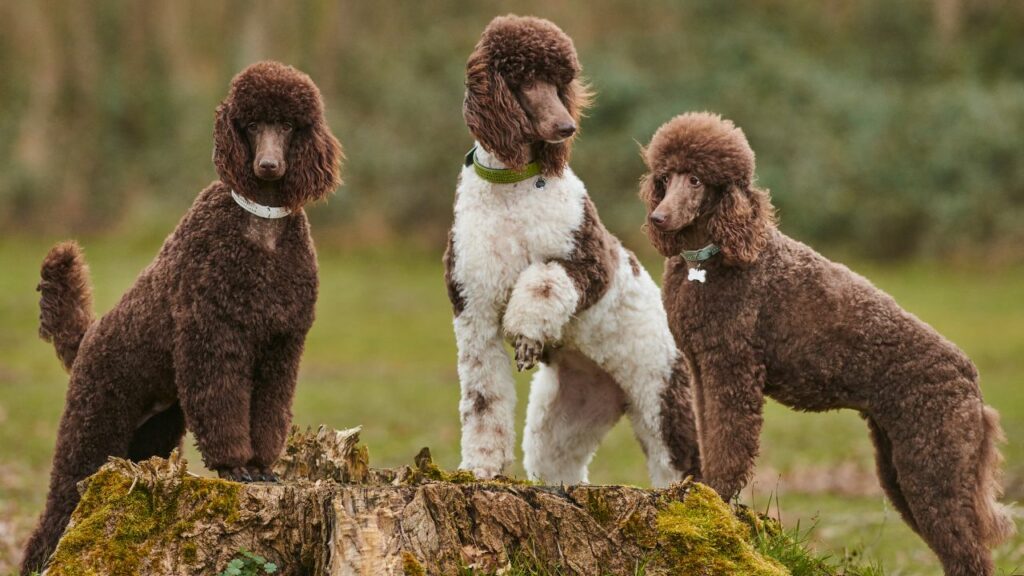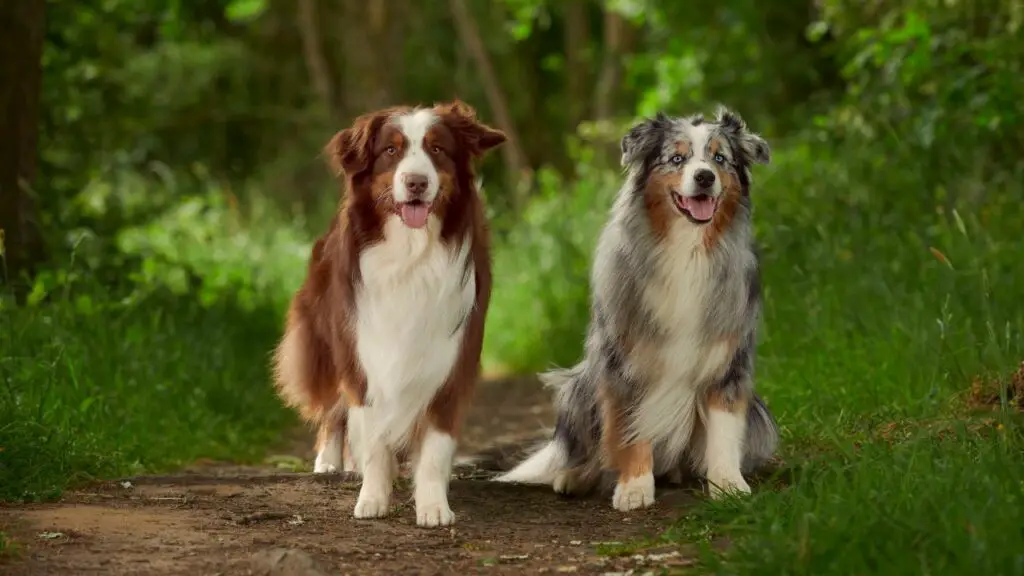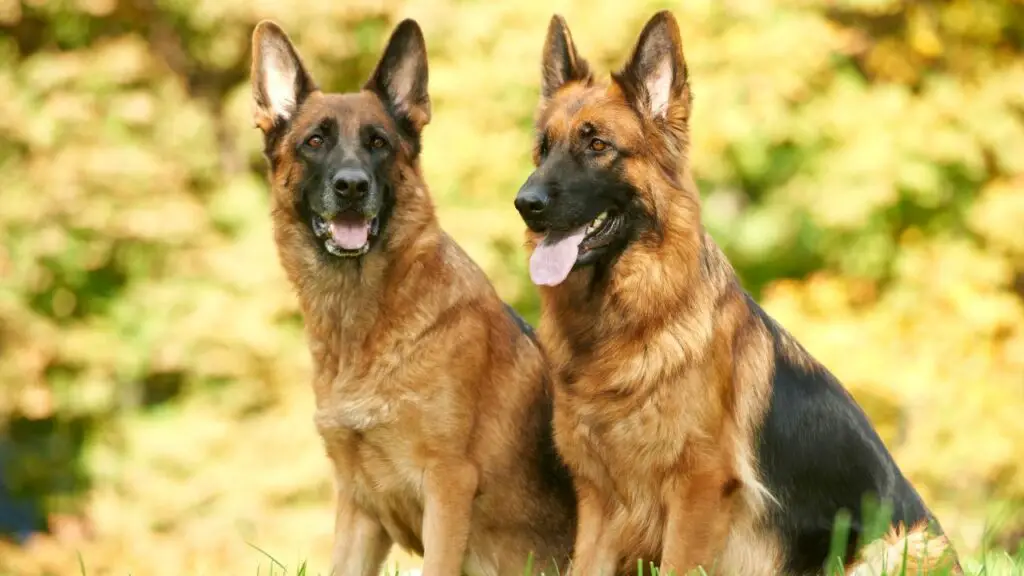Dogs, our loyal companions, exhibit surprising emotional depth. But some breeds are known for their exceptional sensitivity and ability to understand human emotions. Explore the top 9 dog breeds renowned for their high emotional intelligence. From intuitive empathy to complex problem-solving, these canine companions truly connect with their humans on a deeper level. Discover which breeds excel at reading social cues, anticipating our needs, and offering unwavering emotional support. Are you ready to meet your next emotionally intelligent best friend?
Did you know that some dog breeds are especially gifted when it comes to emotional intelligence? Just like people, certain dogs have an incredible ability to sense and respond to their owners’ emotions, offering comfort when it’s needed most.
While all dogs bring love and companionship, certain dog breeds are naturally more empathetic, and able to tune into their human feelings with remarkable sensitivity.
Emotional intelligence in dogs means they can recognize your emotions and provide support, often knowing when you’re feeling anxious or upset. There are emotional support dog breeds that are perfect companions for those facing mental health challenges like anxiety, depression, or PTSD. Their ability to offer comfort and ease emotional pain makes them truly special.
Let’s explore the 9 dog breeds known for having the highest emotional intelligence!
Dog Breeds with the Highest Emotional Intelligence
1. Golden Retriever
Golden Retrievers are famous for their gentle, loving nature, making them exceptional emotional support and service dogs. Their high intelligence and eagerness to please make them easy to train, while their affectionate, playful personality makes them a wonderful addition to any family.
Originally bred as hunting dogs in Scotland, Golden Retrievers had to be smart and obedient, capable of following complex commands, which is why they’re so quick to learn and adapt today.
What sets Golden Retrievers apart is their deep emotional intelligence. They are incredibly in tune with the feelings of the people around them, often sensing when you’re happy, stressed, or in need of extra love.
Their loyalty is unmatched, and they will stay faithfully by your side, offering comfort and companionship. Gentle with children, playful, and friendly with both strangers and other pets, Golden Retrievers are the perfect example of a dog whose emotional intelligence and loving heart can truly brighten your life.
2. Cocker Spaniel
Originally bred as working dogs to assist hunters by flushing birds from trees and undergrowth, Cocker Spaniels have always had a close bond with their owners. This deep connection makes them incredibly affectionate and devoted to their humans, often showing their love through physical closeness and constant companionship.
Their loving nature, intelligence, and ability to form strong emotional bonds make them an ideal choice as emotional support animals. PetPlan notes that Cocker Spaniels are very attuned to their owners’ feelings, often sensing when something is wrong and providing comfort.
Known for their boundless energy and playful spirit, they can remain puppy-like well into adulthood, which adds to their charm. However, their high intelligence and energy mean they need plenty of mental stimulation and physical exercise to stay happy and prevent boredom.
3. Yorkshire Terrier
Yorkshire Terriers are incredibly smart and form strong bonds with their humans, quickly becoming affectionate and loyal companions. Known for their energetic and feisty personalities, Yorkies are protective and make excellent watchdogs despite their small size.
One of their standout traits is how quickly they learn—puppies can be house-trained within weeks, and Yorkies continue to soak up knowledge throughout their lives. The more they experience, the more they grow and adapt.
Yorkies thrive on companionship and don’t like being left alone, which is why many owners opt to have a pair to keep each other company. They are emotionally intelligent and attentive to their owners’ feelings, providing comfort and affection.
However, it’s important to remember that not every Yorkie will have the same temperament—some may be more independent, while others might be extra clingy or eager for attention. Overall, Yorkshire Terriers are loving, adaptable dogs that are perfectly suited for apartment living and offer endless companionship.
4. Labrador Retriever
Labrador Retrievers are widely recognized as one of the smartest dog breeds, and for good reason—they were originally bred for their intelligence and work ethic. In 19th-century Newfoundland, fishermen needed a capable dog to fetch game from both land and water, which led to the development of the Labrador.
Today, their intelligence shines through in many ways, including their remarkable emotional intelligence. Labradors can read human emotions through body language and facial expressions, responding with loyalty, kindness, and affection.
These dogs have an innate ability to sense when their owners are feeling down and provide comfort with their unconditional love. Labradors are not only exceptional emotional support animals but also versatile service dogs, known for their adaptability and trainability.
Their affectionate nature makes them incredibly empathetic, often showing kindness and tolerance, even in situations they may not enjoy. It’s hard to provoke or upset a Labrador, as they remain patient and gentle, offering emotional support and companionship to those who need it most.
5. Poodle
Poodles are celebrated for their exceptional intelligence, which, combined with their eagerness to please, makes them fantastic service dogs. AKC points out that they excel in roles such as guide dogs, assistance dogs for people with physical disabilities, and therapy dogs, thanks to their sharp minds and versatility.
They have an innate ability to sense and respond to their owners’ emotions, often mirroring their emotional states, which demonstrates their deep empathy and understanding.
This emotional intelligence makes Poodles wonderful companions, especially for those in need of emotional support. Their ability to react to human emotions with care and sensitivity brings comfort and reassurance to their owners.
However, Poodles are typically high-energy dogs that require plenty of physical and mental stimulation to stay happy and healthy. Poodles are ideal for individuals seeking an emotionally aware and loving companion.
6. Australian Shepherd
Australian Shepherds are incredibly intelligent and were bred to work closely with shepherds and cowboys, which instilled in them a strong desire to please and collaborate with humans. They are highly responsive to positive reinforcement, making them easy to train and quick to learn new tasks.
However, their boundless energy and sharp minds require regular mental and physical stimulation. Without proper engagement, their high energy can sometimes lead to mischief.
Versatile and athletic, Australian Shepherds excel in a variety of roles, from herding livestock to serving in law enforcement, search and rescue, and even as guides or service dogs. WebMD notes that their devotion to their families and natural protective instincts make them wonderful companions, but it’s important to properly socialize and train them to prevent overprotectiveness or aggression toward perceived threats.
Australian Shepherds are loyal, and hardworking, and make excellent companions for active families who can meet their needs for exercise and mental challenges.
7. Border Collie
Border Collies are renowned for their emotional intelligence, as they are highly attuned to the emotions of their owners and can often reflect the mood of the household. Their loyalty, compassion, and friendly nature make them wonderful companions, and their deep bond with their owners makes them especially suited for roles as therapy and service dogs.
These dogs thrive on affection, both giving and receiving it and their eagerness to learn and please their humans knows no bounds.
Border Collies have a natural inclination to form strong connections with one person, allowing them to work closely and effectively as a team with their handler. While they are fearless and loyal, some Border Collies can become possessive over toys, food, or even their owners.
However, with proper training and socialization, their incredible intelligence and affectionate nature shine through, making them exceptional therapy dogs and loving companions.
8. Cavalier King Charles Spaniel
Cavalier King Charles Spaniels are considered highly emotionally intelligent because of their remarkable ability to sense and respond to human emotions. They form deep bonds with their owners and are always eager to please, making them quick learners and easy to train. Their friendly nature extends to strangers, other animals, and children, making them wonderful companions for families.
These sweet-natured dogs also excel in canine sports such as obedience, rally, and agility, showcasing their versatility and intelligence. Their gentle temperament makes them ideal therapy dogs, bringing comfort and affection to those in need.
According to Medium, Cavaliers can be prone to separation anxiety if left alone for long periods, as they thrive on companionship. Despite their loving nature, they still retain their hunting instincts, often chasing after small creatures, and may require patience when it comes to housetraining.
9. German Shepherd
German Shepherds are renowned for their high emotional intelligence, natural protectiveness, and strong desire to please, which have made them a beloved breed for generations. These dogs are not only loyal and devoted companions but are also quick learners, easily adapting to routines and anticipating their owner’s needs.
German Shepherds respond exceptionally well to positive reinforcement, thriving on praise and affection, though they do require clear boundaries to ensure balanced behavior.
Their natural protectiveness makes them excellent service dogs, capable of guiding, alerting, and offering emotional support. Their ability to sense and respond to human emotions adds to their emotional intelligence, making them highly attuned to their owners’ feelings. Studies even show that dogs like German Shepherds can recognize and predict their human emotional states, providing comfort and security when it’s needed most.
Conclusion
Certain breeds stand out for their remarkable emotional intelligence, making them ideal companions and emotional support animal dogs. Whether it’s their ability to sense human emotions or their innate desire to provide comfort, these breeds are invaluable to those in need of emotional support. Breeds like Australian Cattle Dog breeds, with their strong herding instincts and loyalty, form deep bonds with their owners and excel as rescue dogs and emotional support animals.
Affectionate dogs from these emotionally intelligent breeds are perfect for families, individuals, and even those working with a licensed mental health professional to manage emotional challenges. Whether you’re seeking a playful companion or a devoted friend, a dog breed with high emotional intelligence will bring loyalty, love, and comfort into your life.
While the concept of “emotional intelligence” in dogs is still developing, certain breeds are consistently recognized for their sensitivity, trainability, and complex social understanding. Breeds like Border Collies, Golden Retrievers, and German Shepherds demonstrate remarkable abilities to read human cues and respond appropriately. However, it’s crucial to remember that individual dogs, even within these breeds, vary greatly. Nurture and training play a significant role alongside genetics in shaping a dog’s emotional capacity. Ultimately, regardless of breed, a strong bond built on positive reinforcement and understanding creates the foundation for a deeply connected and emotionally fulfilling relationship between humans and their canine companions.

